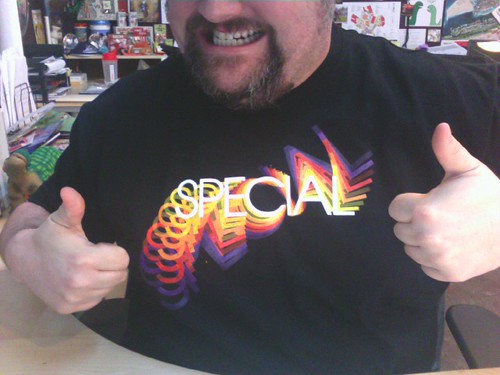About that special offer…just how special is it?
Many businesses use special offers to try to lure customers in or to retain existing customers. Whether it is a discount for new customers, a gift with purchase or buy-one-get-one free, special offers are all over. The question is are these offers working for the business AND are they working for the customer?

I have been going to a massage clinic for a while, and through the years, its rates have climbed steadily, which makes it harder to get massages regularly. The clinic started offering a deal to holders of a local rewards card, which you buy for $25 and which provides a variety of discounts with local businesses. The deal was that you would get a 75-minute massage for the price of a 60-minute massage, or 15 minutes free. There is very little cost to the clinic for this deal, and the value is only about $15.
Since I was booking a 60-minute massage anyway, why not get an extra 15 minutes, right? I did so back in February, and then I booked it again for this week. Well, I got an email back from the massage therapist telling me the deal had expired and that she would be happy to give me a 75-minute massage for the regular price. Needless to say, I was not happy. I wrote back that it was disappointing that they would have this offer on their website scheduler and then not honor it. Then, the clinic’s owner wrote me to tell me that no, the offer hadn’t expired, it simply was valid for a ONE-TIME USE, and since I had used it in February, I was no longer entitled to it. BUT, because I was a “loyal” customer, she would pay the massage therapist the difference (words designed to make me feel guilty…but that is a subject for another post).
Nowhere on the clinic’s website does it say anything about the offer being a one-time deal. In fact, the only place referencing this is the website for the rewards card (in fairly small print). Nobody else on the rewards program has a one-time deal. It is all discounts for first time customers or ongoing discounts such as a 10% discount at a dry cleaner’s and so forth.
What we have here is a special offer that a) has no clear purpose and b) does not have clear (and common) rules for usage. The result is little gain to the business and disappointment to the customer.
When deciding on a special offer, businesses need to do a bit of strategic thinking and planning. Here are some guidelines before you issue any type of special offer.
1) Have a clear marketing goal in mind. Are you training to attract new customers? Are you trying to build loyalty? What do you hope to accomplish with this offer?
2) Have a real offer (with real value). A special offer should be special, that is, a customer should be getting something that he or she really wants and that incentivizes the customer with the goal in mind. That is, if you want a new customer, then make it worthwhile for a new customer to try your service or product (hint–10% off is usually not a great offer for first-time users).
3) Have clear rules that are communicated to the customer BEFORE he/she attempts to use your special offer.
4) Be prepared to honor your special offer. When you don’t honor an offer you risk alienating the customer.
5) Have a way of tracking the offer. If your goal was to get new customers, how many came because the offer? Have regular customers been taking advantage of the offer and is it translating to an overall increase in sales?
Whatever your special offer is, make sure it really is special, both for your business and for your customer.